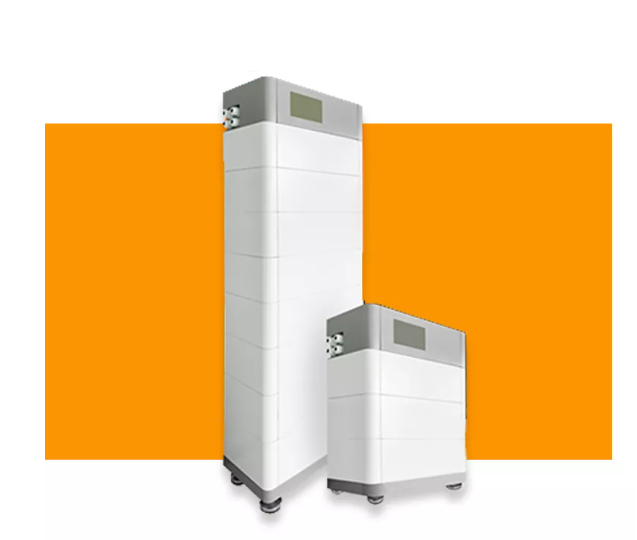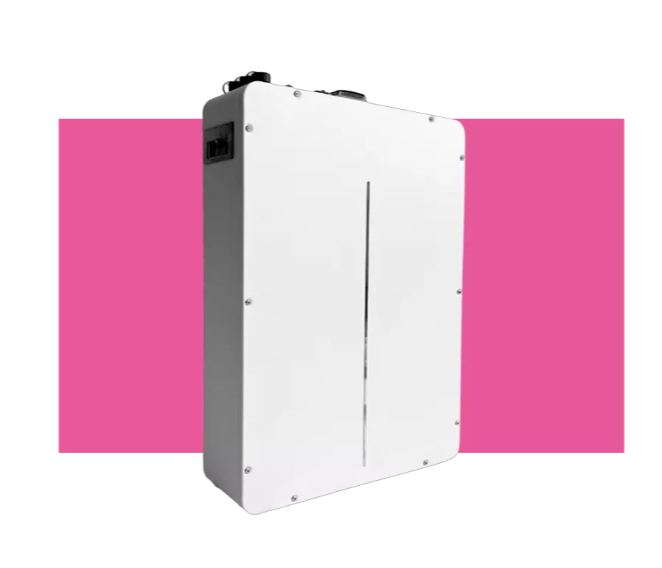
As solar energy continues to gain popularity, many homeowners are looking to maximize their solar systems. Solar batteries can help store excess energy for later use, but they come with a significant upfront cost. In this post, we’ll explore whether the investment in solar batteries is worth it in 2025, and what benefits they bring to your home.
A solar battery is a device designed to store excess electricity produced by your solar panels. When your panels generate more energy than you use, the battery stores the surplus. This stored energy can be used later when the panels aren't producing enough power, like at night or during cloudy days. Essentially, it helps you maximize your solar investment by ensuring you have access to renewable energy around the clock.
Solar batteries operate through a simple charging and discharging cycle. During the day, when your solar panels generate energy, the surplus is sent to the battery for storage. At night or during high-demand periods, the battery releases the stored energy to power your home. The process works seamlessly with your solar panel system, allowing you to reduce reliance on grid electricity and lower your energy bills.
Solar batteries can range in price from $1,500 to $10,000, depending on the size and brand. Prices fluctuate based on factors like capacity, brand reputation, and features offered.
When budgeting for a solar battery, it’s important to consider additional expenses. Installation fees typically range from $1,000 to $3,000, depending on the complexity of the setup. Additionally, you may need to invest in an inverter to convert the stored DC energy to AC, adding another cost. Some homes may also require electrical panel upgrades or permits, which can further increase the total price.
The size of your solar battery (measured in kWh) directly impacts its price. Larger batteries, which offer more storage, cost more. For example, a 10kWh battery might cost around $8,000, while a 15kWh model could reach $12,000. To choose the right battery, assess your energy needs—larger households with higher energy consumption will need bigger batteries, while smaller homes may get by with a more compact option.
Solar batteries can significantly cut your electricity bills by reducing your reliance on the grid. During the day, when solar panels generate more energy than needed, the excess is stored in the battery. In the evening or during cloudy days, you can use this stored energy instead of drawing power from the grid, which can be more expensive during peak hours. This strategy helps you avoid high electricity costs when demand is at its peak.

While solar batteries come with an upfront cost, they can provide long-term savings over 5 to 15 years. On average, you can expect to save hundreds of dollars annually on your energy bills. The return on investment (ROI) takes into account rising energy prices, meaning as electricity costs increase, your savings from using stored solar energy will grow, making your battery investment more valuable over time.
Government rebates and tax credits can make solar batteries more affordable. For example, the federal tax credit offers up to 30% off the installation costs of a solar battery system. Additionally, some states offer their own incentives, further reducing the overall cost. These financial incentives can help you recoup the initial investment much faster, improving the overall financial viability of a solar battery.
The payback period for solar batteries depends on the amount of energy saved. On average, it can take between 5 to 10 years to recoup the upfront cost. This is generally shorter than the payback period for solar panels alone, which can take up to 15 years. The savings from using stored energy during peak hours, when grid electricity is most expensive, play a crucial role in this.
The financial viability of a solar battery depends on your specific energy needs and consumption patterns. For example, a 10kWh battery typically costs around $8,000 to $10,000. With average energy savings of $300–$500 per year, it could take around 10 years to see a return on your investment. If you live in an area with high electricity rates or frequent power outages, the ROI may be higher.
Investing in a solar battery can make sense for homeowners who face frequent power outages, experience high electricity rates, or already have a solar system. For instance, a homeowner with high daytime energy use and expensive grid electricity would benefit from storing solar energy. If your location has a good solar exposure rate, a battery could make even more financial sense.
One of the biggest advantages of solar batteries is the peace of mind they provide during power outages. Solar batteries can store enough energy to keep essential appliances running when the grid goes down. This means you can power lights, refrigerators, and even medical devices, ensuring your home stays functional during emergencies.
Solar batteries help reduce your carbon footprint by relying more on renewable energy. Instead of pulling power from the grid, which often comes from fossil fuels, you can use stored solar energy. By maximizing the use of clean, renewable energy, you contribute to a cleaner, more sustainable environment, reducing your reliance on polluting power sources.
Solar batteries give homeowners the ability to become more energy-independent. By storing and using their own solar energy, they rely less on the national grid, which is often powered by fossil fuels. This not only helps reduce utility bills but also decreases your reliance on external energy sources, giving you greater control over your energy use.
The average lifespan of solar batteries typically ranges from 5 to 15 years. Factors such as the battery type, usage patterns, and maintenance affect how long it will last. After the warranty period, the battery may still work, but its efficiency could decline.
Solar batteries degrade over time, meaning their storage capacity decreases. This is normal and happens as the battery undergoes charge and discharge cycles. As a result, a battery's ability to store energy will diminish, typically after about 5 years. After the warranty period, the capacity loss may continue, reducing the amount of energy the battery can store and affecting its overall performance.

Yes, it is possible to integrate a solar battery with an existing solar panel system. Many homeowners retrofit their current systems to add energy storage. The main benefit is the ability to store excess energy for later use, especially during nighttime or power outages. However, retrofitting your system may come with challenges such as needing additional equipment or modifying your inverter to accommodate the new battery.
Retrofitting an existing solar system with batteries typically costs more than installing a new system. This is due to the need for additional components, like a hybrid inverter or upgraded electrical panels. If your system isn’t "battery-ready," you may face higher costs for system modifications. In contrast, installing a new solar system with batteries can be more cost-effective since it’s designed to work together from the start.
Backup Power and Energy Independence: Solar batteries provide a reliable backup during power outages. They also reduce your dependence on the national grid, giving you more control over your energy use.
Potential Savings on Electricity Bills and Incentives: By storing energy for later use, you can avoid high electricity rates during peak hours. Government rebates and tax incentives can also make solar batteries more affordable.
Environmental Benefits and Sustainability: Using solar batteries allows you to maximize the use of renewable energy, reducing your reliance on fossil fuels and helping lower your carbon footprint.
High Upfront Costs and Long Payback Periods: The initial investment for solar batteries can be high, with payback periods typically ranging from 5 to 15 years.
Limited Lifespan and Degradation of Battery Capacity: Over time, solar batteries lose their capacity to store energy effectively. This degradation affects their performance and lifespan.
Space and Installation Requirements: Solar batteries require adequate space for installation, and the process can be complex. Retrofitting an existing solar system may also lead to additional costs for upgrades or new equipment.
Deciding whether a solar battery is worth the investment depends on several factors. Consider your energy usage patterns, local electricity rates, and whether you experience frequent power outages. For homeowners with high energy bills or unreliable grid power, a solar battery could be a great investment. However, if your energy usage is low or grid electricity is affordable, it might not be necessary.
If a solar battery doesn’t seem like the right choice, there are alternatives like grid power backup systems or traditional power generators. These options offer similar backup power during outages, though they come with different costs and environmental impacts. Power generators may require fuel, while grid backup systems depend on energy providers.
As solar battery technology advances, we can expect lower costs and better efficiency. Improved battery chemistry and manufacturing processes will likely make solar batteries more affordable and longer-lasting. Over time, these developments could make the investment even more appealing for homeowners, providing greater financial and environmental benefits.
In this article, we explored the benefits and costs of solar batteries, including potential savings and environmental impact. We discussed factors like payback periods, financial incentives, and the pros and cons of solar storage. So, is it worth investing in a solar battery in 2025? It depends on your energy needs, location, and budget, but it can be a valuable investment for many homeowners.
Q: How long does a solar battery last?
A: Solar batteries typically last between 5 to 15 years, depending on usage, battery type, and maintenance.
Q: Can I install a solar battery without having solar panels?
A: Yes, you can install a solar battery without solar panels, but its benefits are limited as it won’t be charged by solar energy.
Q: How do I choose the right solar battery size?
A: Choose a battery size based on your daily energy consumption. Typically, a 10kWh battery suits a moderate household.
Q: Are solar batteries safe to use?
A: Yes, solar batteries are safe when properly installed and maintained. Leading brands use safe lithium-ion chemistry.
Breakthrough Commercial and Industrial Energy Storage System Officially Launched
Can An Integrative Power Bank Truly Charge Multiple Devices As Fast As Promised?
How Does An Integrative Power Bank Stack Up Against Regular Power Banks in Terms of Compatibility?
Integrative Power Bank: Is It Worth The Investment for Frequent Travelers?